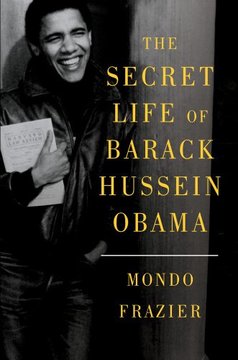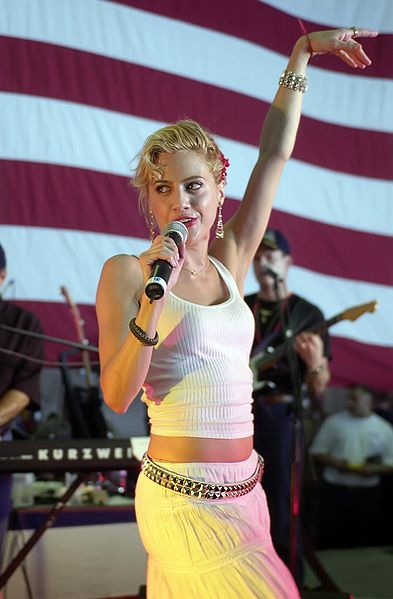
The Associated Press is reporting that one of their own, photographer Bilal Hussein, who has been in U.S. custody since April, 2006, is being turned over to the Iraqi courts.
NEW YORK - The U.S. military says it will turn over an award-winning Associated Press photographer to an Iraqi court, accusing him of having links to terrorist groups.
The military is refusing to disclose what evidence or accusations would be presented, and an AP attorney on Monday strongly protested the decision, calling the U.S. military plans a "sham of due process." The journalist, Bilal Hussein, has already been imprisoned without charges for more than 19 months.
Source - Associated Press
There's the story of Bilal Hussein's plight and another story, one of American news organization's defense of using "locals" such as Bilal Hussein to "report" the news during a war which involves the United States.
Bilal Hussein, award-winning photographer for the Associated Press, native of Fallujah, Iraq, has highlighted the controversy of using persons who may or may not be sympathetic to the United States military's actions in Iraq. Who may or may not be part of the "insurgency" whom the United States is currently fighting. The jury's still out on Bilal because the U.S. military has held Bilal in custody since April of 2006. It wasn't until September of that same year that the Associated Press reported on Bilal's plight.
U.S. military holds AP photographer in Iraq 5 months without charges
By ROBERT TANNER
AP National Writer
The U.S. military in Iraq has imprisoned an Associated Press photographer for five months, accusing him of being a security threat but never filing charges or permitting a public hearing.
Military officials said Bilal Hussein, an Iraqi citizen, was being held for "imperative reasons of security" under United Nations resolutions. AP executives said the news cooperative's review of Hussein's work did not find anything to indicate inappropriate contact with insurgents, and any evidence against him should be brought to the Iraqi criminal justice system.
Hussein, 35, is a native of Fallujah who began work for the AP in September 2004. He photographed events in Fallujah and Ramadi until he was detained on April 12 of this year.
Source - Associated Press - US Plans Case Against AP Photographer
Pentagon defends its detention of Associated Press photographer
The Associated Press
Published: September 18, 2006
NEW YORK The Pentagon defended on Monday its months-long detention of an Associated Press photographer in Iraq, asserting that it has authority to imprison him indefinitely without charges because it believes he had improper ties to insurgents.
But journalism organizations said that covering all sides in the Iraq war sometimes requires contacts with insurgents. They called on the Pentagon to either bring charges against photographer Bilal Hussein so he can defend himself, or release him.
Hussein, an Iraqi photographer employed by the AP, was captured in Ramadi on April 12 of this year. AP executives, who worked on his case behind the scenes for five months, on Sunday made a public call for the military to transfer him to Iraq's criminal justice system or release him.
Bryan Whitman, a Pentagon spokesman, said on Monday that the military has not changed its position.
"All indications that I have received are that Hussein's detainment indicates that he has strong ties with known insurgents and that he was doing things, involved in activities, that were well outside the scope of what you would expect a journalist to be doing," said Pentagon spokesman Bryan Whitman. He refused to provide any details.
Source - International Herald Tribune
Who is Bilal Hussein?
The majority of the Associated Press' information about Bilal has been that he is a native of Fallujah and that he began to work for the AP in September of 2004.
Since the AP didn't supply much in the way of info on who Bilal is we decided to dig a little deeper:
From the Washington Post: A Journalist In Limbo
The headline, "a journalist in limbo" is fairly disingenuous. Balil was hired as a photographer stringer, not a full fledged journalist. The use of "journalist" gives Balil, "instant cachet."
Bilal Hussein is part of the latest generation of Associated Press hires in the Middle East. He was a shopkeeper in Fallujah, selling mobile phones and computers. Although he had a degree from the Baghdad Institute of Technology, it was the best opportunity available in the fractured Iraqi economy.
AP first hired him as a translator and driver. He proved smart and trustworthy, and was already comfortable with the phones, laptops and cameras that are tools of the journalist's trade. Within months, he was taking professional-quality pictures, including one of insurgents engaged with coalition forces that was part of AP's Pulitzer Prize-winning photography entry last year.
Source - In Iraq, A Journalist In Limbo
"He (Bilal) proved smart and trustworthy"
What measures did the Associated Press undertake to ensure that Bilal was indeed, trustworthy?
In the same piece WAPO defends the use of hiring "locals" to get the news:
U.S. journalists are severely limited in their ability to move safely, make themselves understood and develop sources in such areas. AP has learned to overcome those limitations, using techniques honed over decades of covering sectarian confrontation and bloodshed in the Middle East.
It has long been AP practice to hire and train local people in the agency's permanent international bureaus. Many become highly skilled career journalists who remain with the Associated Press for decades. Several are second-generation staffers. Their work has never been more important to the Associated Press and the global audience that relies on our reporting.
Without their access and insight into what is happening in their countries and communities, our understanding of the history being made there every day would be shallow and one-dimensional. It would also be far more vulnerable to control and spin by "official" sources.
Note WAPO's reference to "official" sources who "control" and "spin" the news, inferring an adversarial relationship with the U.S. government military. The War in Iraq has never been officially "sanctioned" by the MSM.
The defense of using "locals" in a war zone raises the question: Are American news organizations putting American military lives in jeopardy in their "zeal" to report "both sides" fairly?
Would American news organizations, during World War II--using the same rationale as today--hired "local" Germans as reporters?
The military said Hussein was captured with two insurgents, including Hamid Hamad Motib, an alleged leader of al-Qaida in Iraq. "He has close relationships with persons known to be responsible for kidnappings, smuggling, improvised explosive device (IED) attacks and other attacks on coalition forces," according to a May 7 e-mail from U.S. Army Maj. Gen. Jack Gardner, who oversees all coalition detainees in Iraq.
"The information available establishes that he has relationships with insurgents and is afforded access to insurgent activities outside the normal scope afforded to journalists conducting legitimate activities," Gardner wrote to AP International Editor John Daniszewski.
Source - Associated Press
The Associated Press has stood by Bilal. If the Iraqi courts put forth evidence that Bilal was in collusion with or was an insurgent, will the AP and other news org's address the issue of using these so-called journalists and/or photographers?
Recently Reuters had to admit that photographs submitted by another "local," a photographer in Lebanon during last year's conflict with Israel, had been manipulated.
Reuters admits altering Beirut photo
Reuters withdraws photograph of Beirut after Air Force attack after US blogs, photographers point out 'blatant evidence of manipulation.' Reuters' head of PR says in response, 'Reuters has suspended photographer until investigations are completed into changes made to photograph.' Photographer who sent altered image is same Reuters photographer behind many of images from Qana, which have also been subject of suspicions for being staged.
Source - YNet News - Reuters Admits Altering Beirut Photo
One of the "blogs" mentioned in the Reuters' photo fisking was Charles Johnson's "Little Green Footballs".

This Reuters photograph shows blatant evidence of manipulation. Notice the repeating patterns in the smoke; this is almost certainly caused by using the Photoshop “clone” tool to add more smoke to the image. (Hat tip: Mike.)
It’s so incredibly obvious, it reminds me of the faked CBS memos. Smoke simply does not contain repeating symmetrical patterns like this, and you can see the repetition in both plumes of smoke. There’s really no question about it.
Source - Little Green Footballs - Reuters Altering Photos From Beirut?
The issue of Bilal and others held by the United States military for an indeterminate amount of time without representation nor charges leveled needs to be addressed. The other issue of the news media playing Devil's Advocate in its role of reporting the "news" in Iraq also needs to be addressed.
It would have been interesting to see what guidelines in hiring "locals" the MSM would of used had it given its "Official Seal Of Approval" to the war in Iraq.
Source - Associated Press - US Plans Case Against AP Photographer
By LBG
DBKP.com - Bigger, Better!.
Death by 1000 Papercuts Front Page.






























No comments:
Post a Comment
Leave your name/nic.
We've changed the comments section to allow non-registered users to comment.
We'll continue like that until it's being abused.
We reserve the right to delete all abusive or otherwise inappropriate comments.